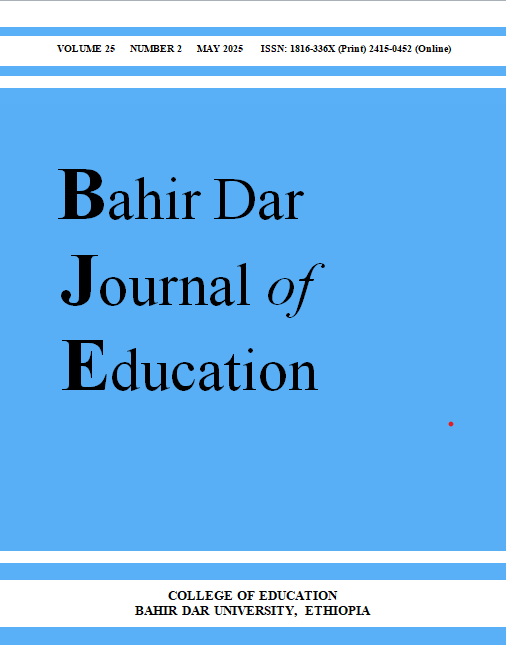Main Article Content
Challenges of practicing competence-based education at Bahir Dar University: Views of faculty and academic leaders
Abstract
The study was intended to investigate the challenges associated with the implementation of competence-based education (CBE) from the perspectives of faculty members and academic leaders at Bahir Dar University. A case study design was utilized to gain insights. A total of twenty-two participants, comprising eighteen males and four females, who occupy roles as faculty members, academic leaders, or both, were involved. Data were gathered through semi-structured interviews. The data were subsequently analyzed using the inductive content analysis technique. The study identified nine distinct categories of challenges that impede the effective implementation of CBE, such as (1) lack of shared understandng, (2) donor-driven and top-down curriculum design, (3) over-dominance of conventional instruction and assessment practice, (8) political interference, and (9) stakeholders’ lack of commitment and negligence toward good citizenship. The study concludes that initiating the process with a comprehensive understanding of CBE that addresses these challenges is crucial. Furthermore, employing a systems thinking approach is beneficial for enhancing the practice of CBE.







